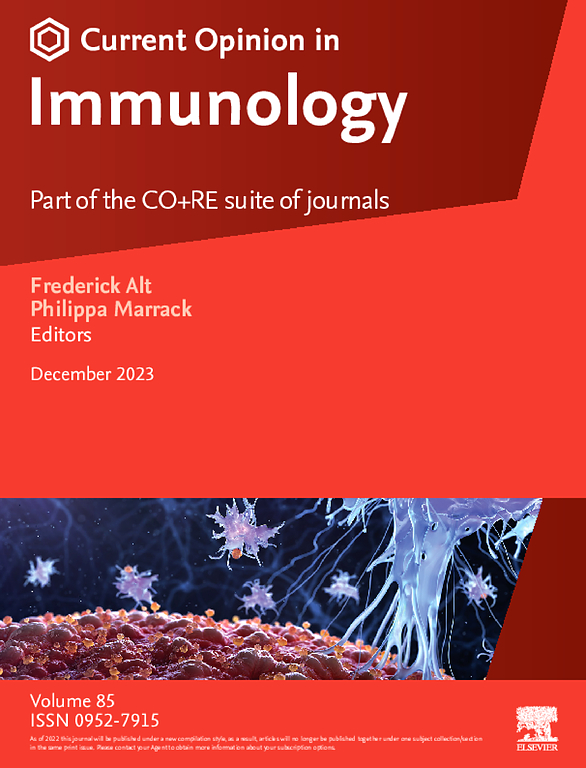SARS-CoV-2与慢性肾病:挑战与未来方向
IF 5.8
2区 医学
Q1 IMMUNOLOGY
引用次数: 0
摘要
慢性肾脏疾病(CKD)患者,特别是透析或肾移植患者(KTRs)的终末期肾脏疾病患者,极易受到感染,包括新型严重急性呼吸综合征冠状病毒2 (SARS-CoV-2)。2019冠状病毒病大流行对这一弱势群体的影响尤为严重,导致发病率和死亡率上升。CKD患者的免疫功能障碍导致对感染的防御不理想,对SARS-CoV-2疫苗的反应降低。尽管疫苗接种显著降低了严重后果,但与一般人群相比,透析患者和ktr患者表现出较低的血清转换率和更快的抗体消退。最近的证据表明,加强剂量可改善免疫反应,但疫苗效力在免疫抑制个体中仍然较低。本文综述了COVID-19在肾病患者中的流行病学、其免疫失调的机制以及疫苗接种策略的有效性。未来的方向包括优化加强方案,整合血清学和贪婪测试来定制疫苗接种策略,以及探索新的免疫治疗方法。肾病学家、免疫学家和公共卫生专家参与的多学科努力对于改善大流行防范和制定有针对性的战略以保护肾病患者免受未来病毒威胁至关重要。本文章由计算机程序翻译,如有差异,请以英文原文为准。
SARS-CoV-2 and chronic kidney disease: challenges and future directions
Patients with chronic kidney disease (CKD), especially those with end-stage kidney disease on dialysis or kidney transplant recipients (KTRs), are highly susceptible to infections, including the novel severe acute respiratory syndrome coronavirus 2 (SARS-CoV-2). The COVID-19 pandemic disproportionately affected this vulnerable population, leading to increased morbidity and mortality. Immune dysfunction in CKD patients contributes to a suboptimal defense against infections and a reduced response to SARS-CoV-2 vaccinations. Although vaccination has significantly reduced severe outcomes, dialysis patients and KTRs exhibit lower seroconversion rates and faster antibody waning compared to the general population. Recent evidence suggests that booster doses improve immune responses, but vaccine efficacy remains lower in immunosuppressed individuals. This review highlights the epidemiology of COVID-19 in nephropathic patients, the mechanisms underlying their immune dysregulation, and the effectiveness of vaccination strategies. Future directions include optimizing booster regimens, integrating serological and avidity testing to tailor vaccination strategies, and exploring novel immunotherapeutic approaches. A multidisciplinary effort involving nephrologists, immunologists, and public health experts is essential to improve pandemic preparedness and develop targeted strategies to protect nephropathic patients from future viral threats.
求助全文
通过发布文献求助,成功后即可免费获取论文全文。
去求助
来源期刊
CiteScore
13.30
自引率
1.40%
发文量
94
审稿时长
67 days
期刊介绍:
Current Opinion in Immunology aims to stimulate scientifically grounded, interdisciplinary, multi-scale debate and exchange of ideas. It contains polished, concise and timely reviews and opinions, with particular emphasis on those articles published in the past two years. In addition to describing recent trends, the authors are encouraged to give their subjective opinion of the topics discussed.
In Current Opinion in Immunology we help the reader by providing in a systematic manner: 1. The views of experts on current advances in their field in a clear and readable form. 2. Evaluations of the most interesting papers, annotated by experts, from the great wealth of original publications.
Current Opinion in Immunology will serve as an invaluable source of information for researchers, lecturers, teachers, professionals, policy makers and students.
Current Opinion in Immunology builds on Elsevier''s reputation for excellence in scientific publishing and long-standing commitment to communicating reproducible biomedical research targeted at improving human health. It is a companion to the new Gold Open Access journal Current Research in Immunology and is part of the Current Opinion and Research(CO+RE) suite of journals. All CO+RE journals leverage the Current Opinion legacy-of editorial excellence, high-impact, and global reach-to ensure they are a widely read resource that is integral to scientists'' workflow.

 求助内容:
求助内容: 应助结果提醒方式:
应助结果提醒方式:


